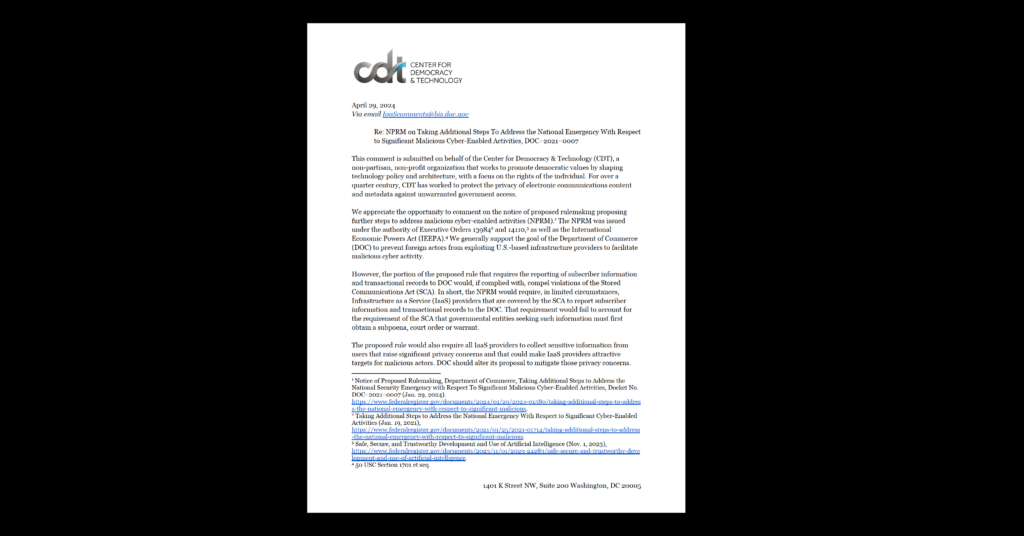Groups to Court: Judges Have ‘Not Without a Warrant’ Power
Judges have the power to make the government get a warrant before gaining access to cell phone location data, the Electronic Frontier Foundation and the ACLU said in court papers. That power, the groups said, flows from provisions in the Electronic Communication Privacy Act and the Fourth Amendment.
The outcome here will help determine whether, in future cases, law enforcement needs to get a warrant before being allowed to track someone’s movements using cell phone location data.
This 5th U.S. Circuit Court of Appeals case, In Re Applications of the United States for Historical Cell-Site Data, involves law enforcement officers asking a magistrate judge to sign off on requests that T-Mobile and MetroPCS turn over 60 days of cell site location information without proving probable cause. A federal district court in Texas upheld decisions by Magistrate Judge Stephen Smith that the information is constitutionally protected and that the government needed strong evidence a crime had been committed before the magistrate judge would sign an order to compel the release of the location information. The government appealed that ruling. It argues that people have no reasonable expectation of privacy in location information held by their cell phone providers because they “voluntarily” give away that information each time their phone pings a cell site.
The ACLU/EFF amicus brief says – and CDT agrees – that the Supreme Court’s landmark decision in the 2012 GPS tracking case, U.S. v. Jones, compels the court at a minimum to interpret ECPA to give judges discretion to require warrants. The Jones case turned on the “trespass” that occurred when law enforcement officers attached a GPS device to the vehicle the defendant drove. Following Jones, other courts will certainly require warrants when law enforcement officers trespass to attach GPS devices to vehicles to track location. For example, as CDT and others urged, the Ohio Supreme Court on March 13 vacated a lower court decision permitting warrantless installation of a GPS tracking device.
The bigger question, though, is whether the Fourth Amendment requires a warrant for long-term location tracking when there is no trespass. While there were a few thousand GPS tracking devices installed when Jones was decided, there are over 327 million cell phones in active use in the U.S., and each can operate as a tracking device. Five justices in Jones agreed that long-term location monitoring without a trespass is a Fourth Amendment search because it violates a person’s reasonable expectation of privacy.
To avoid the constitutional question in the Fifth Circuit case – whether the Fourth Amendment requires a warrant for long term cell site location tracking – the groups urged the court to interpret ECPA to give judges discretion to require warrants. In the alternative, they argued that if the court reaches the constitutional question, it must determine that the government needs a warrant.
This is the first appellate case after U.S. v. Jones to consider whether warrants can be required for stored cell site location information. In 2010, the Third Circuit court of appeals said that ECPA gives magistrate judges the power to require probable cause for cell site location information. The groups argued the Fifth Circuit should come to the same conclusion.
The groups also said that the court should reject the argument that magistrate judges must approve government applications seeking information under ECPA even when the magistrate believes such approval would authorize an unconstitutional search. Prolific ECPA scholar Professor Orin Kerr used that arguement in an amicus brief he filed to support the government’s case. If the court agrees with Prof. Kerr, magistrate judges would be required to issue orders for unconstitutional searches authorized by statute, shattering Fourth Amendment jurisprudence.
This is a bellwether case. If the court agrees with CDT, ACLU, EFF and NACDL, that warrants can be required for cell site location information, other courts will follow. If it agrees with the government that people have no reasonable expectation of privacy in location information generated through cell phone use, there would be a split in the courts ripe for the Supreme Court to resolve.


